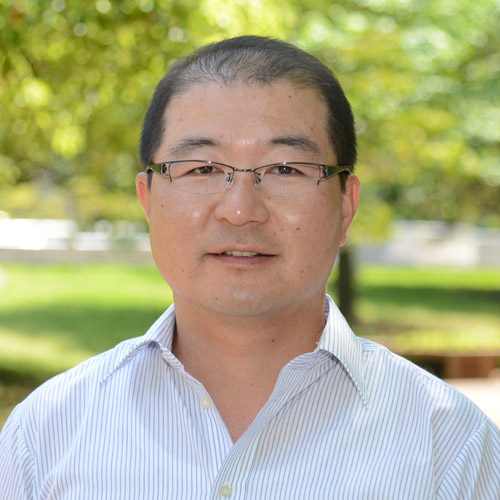Research

Security assurance schemes for IoT devices
The Internet of Things has become widespread, and various things have been networked. The same is true for automobiles, and control using a network called a connected car has come to be performed. On the other hand, cases have been reported in which a malicious attacker remotely controls a car. In order to respond to such social issues, it is important to ensure that security functions work.

Lightweight Cryptography
When ensuring the security of embedded devices, which play an important role in various IoT applications, implementation resource constraints in software and hardware are issues. Expectations for security countermeasure technology, which is a technology that can be implemented with low resources even for RFID tags and inexpensive microcontrollers, which are difficult to handle with conventional general-purpose encryption, have increased.

Cryptographic Authentication and Key Exchange
Entity authentication and key exchange are indispensable cryptographic technologies for all communications, including IoT/CPS. Among them, Authenticated Key Exchange (AKE) protocols allow each entity to authenticate corresponding parties through public networks such as the Internet and share session keys to establish secure channels. These protocols have already been widely used in the real world, such as HTTPS, VPN, TLS, and SSH.
Researcher

Hirotaka Yoshida
Hirotaka Yoshida is currently the team leader of the security assurance scheme research team at Cyber Physical Security Research Center (CPSEC) at the National Institute of Advanced Industrial Science and Technology (AIST). His research focuses on security certification schemes, lightweight cryptography, hardware security, secure system design. He received the Ph.D. degree in electrical engineering from KU Leuven, Belgium, in 2013. From 2001 to 2016, he was with the Research & Development Group, Hitachi, Ltd.

SeongHan Shin
2005 Ph.D., Department of Information and Communication Engineering, Graduate School of Information Science and Technology, The University of Tokyo. Currently, he is a senior researcher in the Security Assurance Scheme Research Team, Cyber Physical Security Research Center, National Institute of Advanced Industrial Science and Technology (AIST). He specializes in authentication and cryptographic protocols.

Hiromitsu Takagi
Senior Researcher

Kota Ideguchi
2006 Ph.D., Department of Physics, Graduate School of Science, The University of Tokyo Currently, he is a senior researcher in the Security Assurance Scheme Research Team, Cyber Physical Security Research Center, National Institute of Advanced Industrial Science and Technology (AIST). He specializes in IoT security and symmetric cryptography.

Ai Kitagawa
Researcher

Keitaro Hashimoto
Keitaro Hashimoto received his B.E., M.E., and Ph.D. degrees from Tokyo Institute of Technology, Japan, in 2018, 2020, and 2023, respectively. He is currently working as a researcher of the security assurance scheme research team at Cyber Physical Security Research Center (CPSEC) at the National Institute of Advanced Industrial Science and Technology (AIST). His research interests are cryptographic protocols (e.g., key exchange and secure messaging) and how to implement cryptographyic technologies into the real-world.

Shinji Sato
1981 Graduated from Department of Physics, The University of Tokyo. Currently, he is an Invited Researcher in the Security Assurance Scheme Research Team, Cyber Physical Security Research Center (CPSEC), National Institute of Advanced Industrial Science and Technology (AIST) He specializes in IT security evaluation and certification of smartcards and related devices.

Mari Itoh
Invited Researcher

Junko Takahashi
Invited Researcher (NTT)
